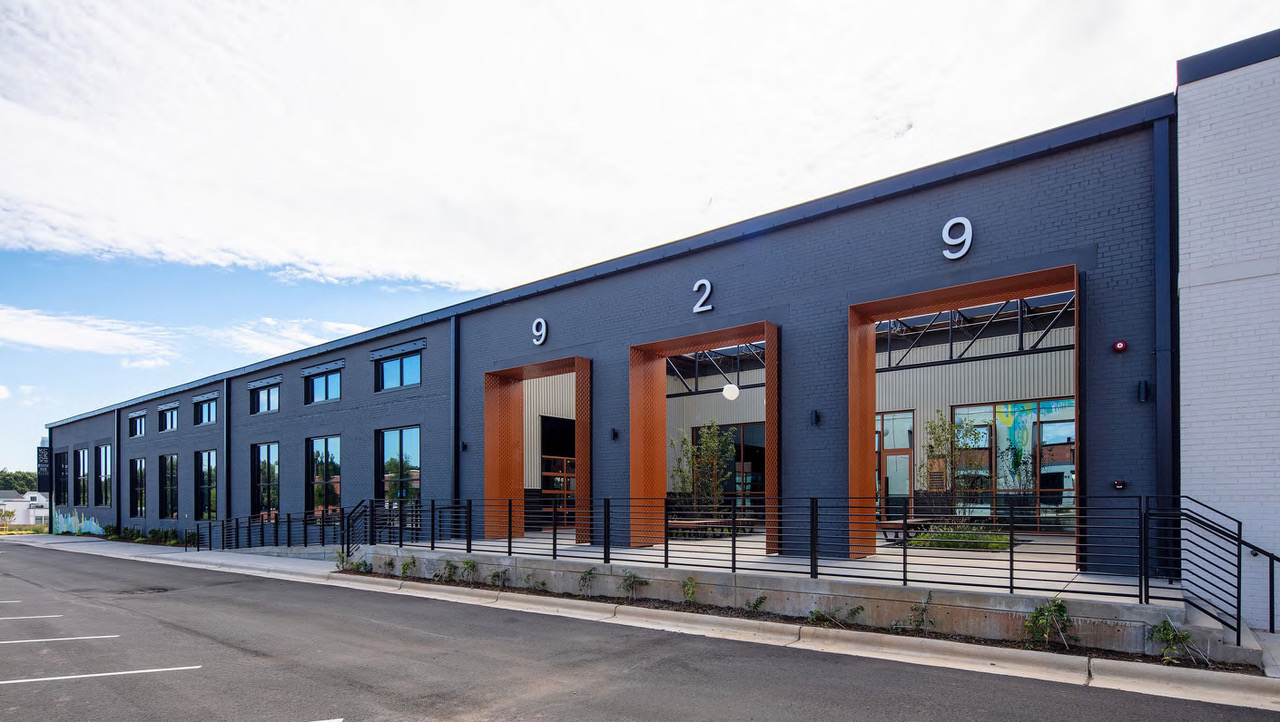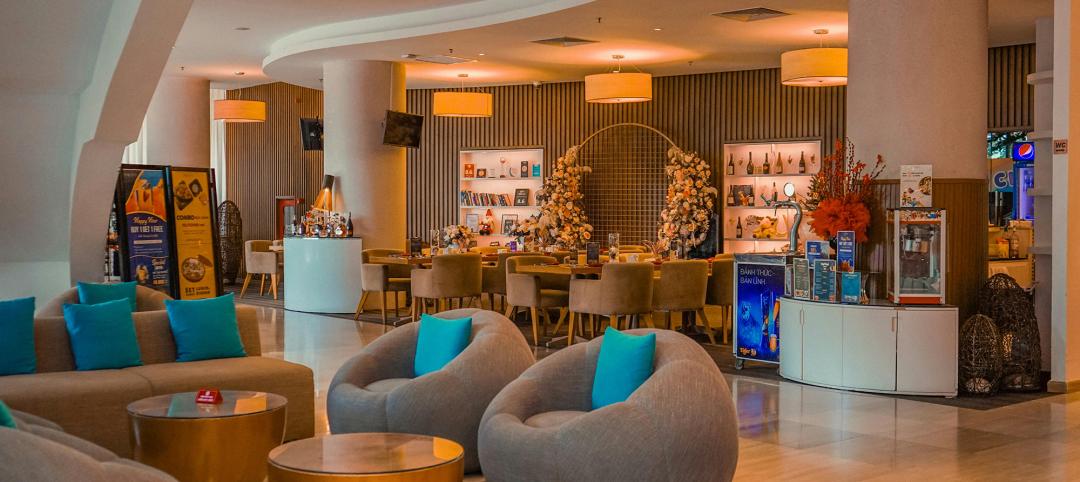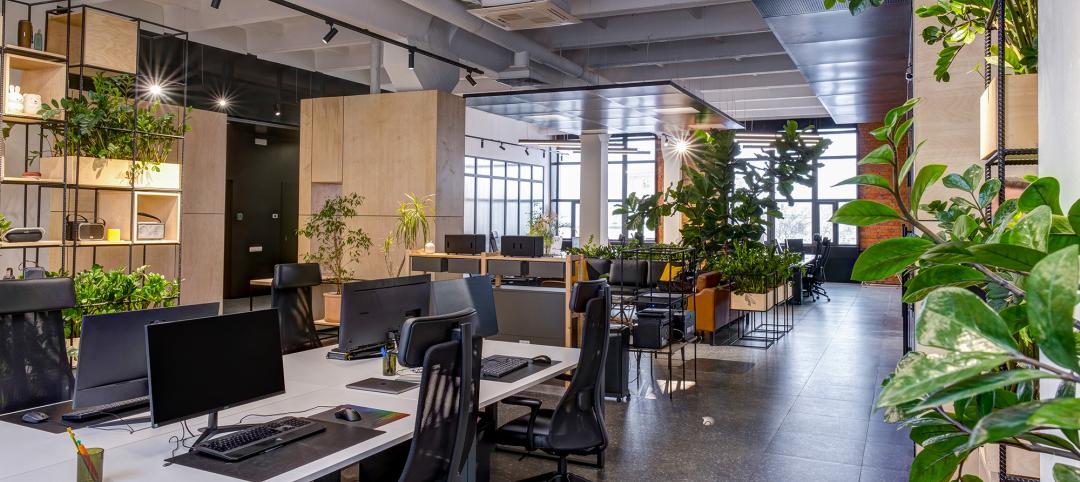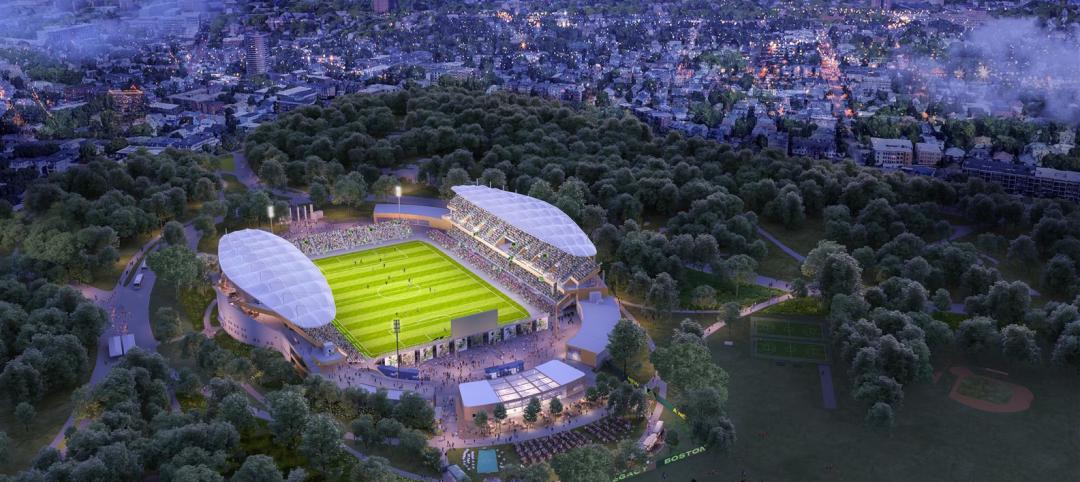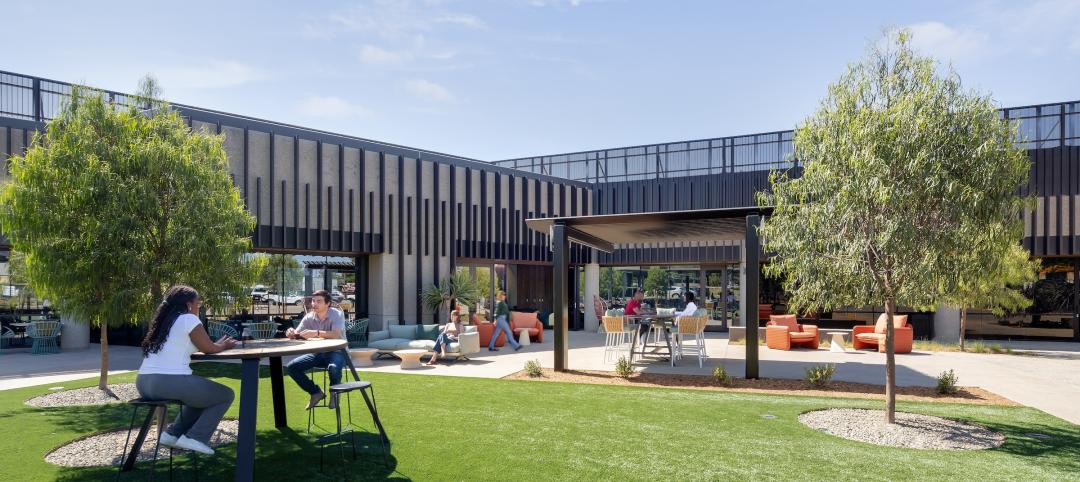Swinerton, the national general contractor, expanded into the Southeast U.S. in 2018. Since then, the firm’s Carolinas Division has generated at least $359 million in revenue from commercial construction projects that have run the gamut from corporate interiors and multifamily to healthcare and mass timber builds.
Of that total, Swinerton’s Carolinas Division is on pace to generate $120 million in revenue in 2023 alone. Among its projects nearing completion is the adaptive reuse within a former warehouse building in West Charlotte, N.C.’s Lower Tuck mixed-use development for office space: a $2.8 million renovation to create a 28,000-sf, two-story space that houses an international nonprofit disaster relief organization; and a nearly $1 million 9,000-sf expansion for an existing tenant, the tool manufacturer Positec, that adds offices, a conference room, and a break room.
These two upgrades were performed by the division’s Special Projects team. Each of Swinerton’s 20 offices nationwide has its own Special Projects crews, which allow the firm to position itself as a “community based GC” that is run like a boutique business, says Jason Hlewicki, Director of Special Projects for the Carolinas Division.
What constitutes a “special project,” however, is a little amorphous. Hlewicki says his special projects team is not separate from the division’s other employees. Nor is a project deemed “special” because of its size or cost: Hlewicki says his team has completed a renovation for a local restaurant group in 56 days, and has also worked on 100,000-sf $40 million jobs.
While special projects run across Swinerton’s practices, their designation “depends on the project’s characteristics and makeup,” he explains. Examples include commercial interiors, off-hours work, medical office building interiors, classroom renovations, and sports complexes.
Division serves a growing region
Hlewicki says that having a special projects team within a division allows Swinerton to be nimble and to pivot when needed, partly by pairing “the best possible staff with the project.” Another competitive advantage, he says, includes Swinerton being a self-performing GC whose crews are made up of its employees. (Swinerton is employee-owned.)
The Carolinas Division completes between 20 and 30 special projects annually, and therefore it deals with a lot of different AEC firms and developers. (Third & Urban is the developer of the Lower Tuck project.) it’s been Hlewicki’s experience that special projects allow Swinerton more room for creativity, especially when the firm is brought on early as part of the project’s design-build team.
The Carolinas have enjoyed a steady influx of people and businesses in recent years, a trend that’s expected to continue going forward. Hlewicki says demand for his firm’s services, both for new builds and renos, “is moving in an exciting direction.” Those services include Swinerton’s Facilities Solution program, a national platform that provides maintenance to existing clients using dedicated crews. “This keeps Swinerton top of mind with our customers,” says Hlewicki.
Related Stories
M/E/P Systems | Oct 30, 2024
After residential success, DOE will test heat pumps for cold climates in commercial sector
All eight manufacturers in the U.S. Department of Energy’s Residential Cold Climate Heat Pump Challenge completed rigorous product field testing to demonstrate energy efficiency and improved performance in cold weather.
MFPRO+ New Projects | Oct 30, 2024
Luxury waterfront tower in Brooklyn features East River and Manhattan skyline views
Leasing recently began for The Dupont, a 41-story luxury rental property along the Brooklyn, N.Y., waterfront. Located within the 22-acre Greenpoint Landing, where it overlooks the newly constructed Newtown Barge Park, the high-rise features East River and Manhattan skyline views along with 20,000 sf of indoor and outdoor communal space.
Resiliency | Oct 29, 2024
Climate change degrades buildings slowly but steadily
While natural disasters such as hurricanes and wildfires can destroy buildings in minutes, other factors exacerbated by climate change degrade buildings more slowly but still cause costly damage.
Hotel Facilities | Oct 29, 2024
Hotel construction pipeline surpasses 6,200 projects at Q3 2024
According to the U.S. Hotel Construction Pipeline Trend Report from Lodging Econometrics, the total hotel pipeline stands at 6,211 projects/722,821 rooms, a new all-time high for projects in the U.S.
Office Buildings | Oct 29, 2024
Editorial call for Office Building project case studies
BD+C editors are looking to feature a roundup of office building projects for 2024, including office-to-residential conversions. Deadline for submission: December 6, 2024.
Healthcare Facilities | Oct 28, 2024
New surgical tower is largest addition to UNC Health campus in Chapel Hill
Construction on UNC Health’s North Carolina Surgical Hospital, the largest addition to the Chapel Hill campus since it was built in 1952, was recently completed. The seven-story, 375,000-sf structure houses 26 operating rooms, four of which are hybrid size to accommodate additional equipment and technology for newly developed procedures.
Contractors | Oct 25, 2024
Construction industry CEOs kick off effort to prevent suicide among workers
A new construction industry CEO Advisory Council dedicated to addressing the issue of suicide in the construction industry recently took shape. The council will guide an industry-wide effort to develop solutions targeting the high rate of suicide among construction workers.
Sports and Recreational Facilities | Oct 24, 2024
Stadium renovation plans unveiled for Boston’s National Women’s Soccer League
A city-owned 75-year-old stadium in Boston’s historic Franklin Park will be renovated for a new National Women’s Soccer League team. The park, designed by Fredrick Law Olmsted in the 1880s, is the home of White Stadium, which was built in 1949 and has since fallen into disrepair.
Laboratories | Oct 23, 2024
From sterile to stimulating: The rise of community-centric life sciences campuses
To distinguish their life sciences campuses, developers are partnering with architectural and design firms to reimagine life sciences facilities as vibrant, welcoming destinations. By emphasizing four key elements—wellness, collaboration, biophilic design, and community integration—they are setting their properties apart.
Adaptive Reuse | Oct 22, 2024
Adaptive reuse project transforms 1840s-era mill building into rental housing
A recently opened multifamily property in Lawrence, Mass., is an adaptive reuse of an 1840s-era mill building. Stone Mill Lofts is one of the first all-electric mixed-income multifamily properties in Massachusetts. The all-electric building meets ambitious modern energy codes and stringent National Park Service historic preservation guidelines.


